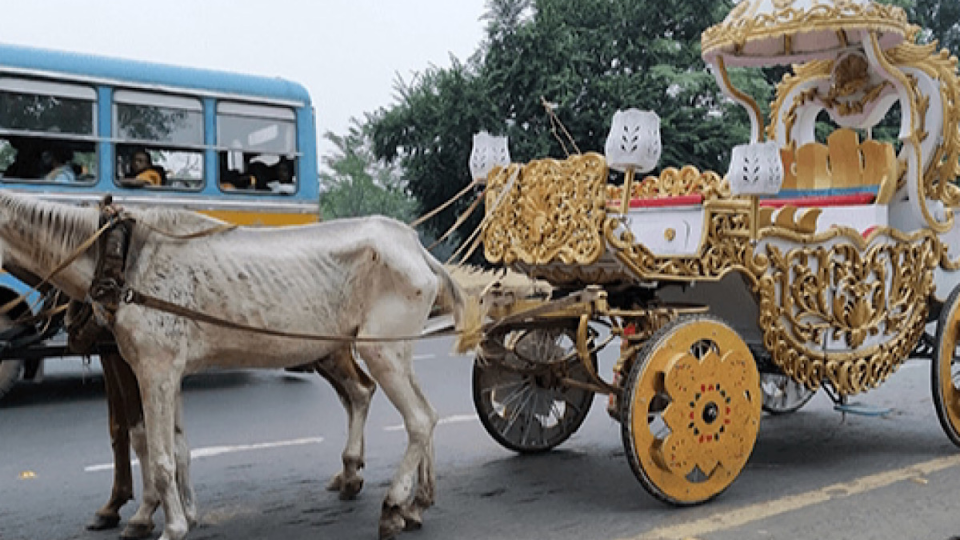May 15, 2024
KOLKATA – In Kolkata’s bustling Maidan area, amid urban life and green spaces, horses face a silent struggle. These majestic creatures, integral to the city’s charm, endure neglect and mistreatment amidst traffic and urban buzz. Near Victoria Memorial and Maidan, they’ve served as recreational rides but now show signs of neglect—undernourished, overworked, and exhausted.
Their plight reflects broader challenges in urban animal welfare, often overlooked amidst city activities. Addressing their well-being requires awareness, stricter regulations, and compassionate action. Preserving these equine companions isn’t just about their individual suffering but also about upholding our responsibility towards all living beings sharing Kolkata’s vibrant landscape.
The absence of appropriate care and management is one of the main problems causing their predicament. Horses need specialised meals, routine veterinary care, and enough rest—none of which are regularly available in their current surroundings. Even when they are plainly sick, injured, lame, or malnourished, labouring horses must draw huge carriages loaded with people. In addition to being forced to pull carts all day in the heat and other harsh weather conditions and having no choice but to stand in their own waste and inhale exhaust fumes, the horses employed for these tourist tours are frequently lashed and abused. They go for extended periods of time without eating or drinking, which causes physical tiredness and other major health issues.
Numerous horses suffer from serious injuries, such as fractures and lameness, which are probably the result of being hit by automobiles and other vehicles. Some horses are totally abandoned after they are deemed unfit for service, but the majority are left to fend for themselves on the Maidan (Brigade Parade Ground). Famished, they frequently stray into the road to get food and end up getting struck by a car. Many of them die slowly and painfully in the end without receiving any veterinary care.
These horses had blood tests done; 100 per cent of them had red blood cell counts that were below normal, and 80 per cent had haemoglobin levels that were below normal. Severe anaemia and hunger are indicated by both of these criteria.
Moreover, the urban landscape poses additional challenges. Heavy traffic, noise pollution, and exposure to exhaust fumes take a toll on their health, leading to respiratory problems and overall stress. The absence of designated spaces for their accommodation and exercise further exacerbates their condition, leaving them confined to cramped areas with limited mobility.
Malnourished horses with depressed immunity who are tethered in an unhygienic environment can contract infectious and deadly diseases, such as glanders, which can cause death in humans.
Local activists and animal welfare groups are urging immediate action to improve living conditions for horses. They call for stricter regulations, including health screenings, shelter, clean water, and food. Raising public awareness about responsible interaction is crucial for empathy and respect. The issue highlights broader urban animal welfare challenges. Cities need thoughtful policies for human-animal coexistence. Authorities must collaborate with welfare groups, enforce regulations, and consider rest areas and rehab for horses. Collective responsibility and compassion can create a better future for horses in Kolkata and beyond.
The writer is an environment enthusiast and an animal welfare activist, and is the Founder of Kaloms Ideas Welfare Foundation. She is also a chartered accountant.


